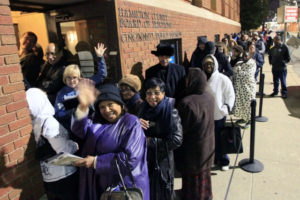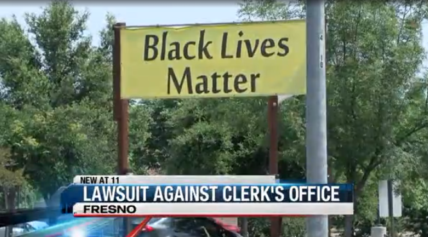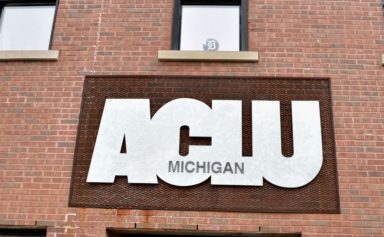
It’s an issue of enormous importance to the Black community, as the massive rise in incarceration in the last three decades has left millions of Black former inmates without the right to vote. In fact, currently 1 in 13 Black people in the U.S. are barred from voting because of these disenfranchisement policies, according to the Sentencing Project.
Passage of such a measure could dramatically change the complexion of the voting populace in many states, which could in turn change the complexion of many elected officials—which is likely why the opposition to such legislation has historically been led by Republicans, who fear former convicts would overwhelmingly vote Democratic.
U.S. Attorney General Eric Holder last year said the disenfranchisement of ex-convicts disproportionately hurt Black people and called for an end to the policy.
The Brennan Center for Justice at New York University Law School said 35 states currently have policies on the books preventing people from voting after their release from prison.
“At a time when our country is considering the legacy of Selma and the equality at the ballot box it helped bring, preventing people from voting is just not acceptable,” Nicole Austin-Hillery, director and counsel of the Brennan Center’s office in Washington, D.C., said in a press release.
Deborah J. Vagins, senior legislative counsel for the American Civil Liberties Union, in an ACLU press release reminded Congress that many of the disenfranchisement laws passed by the states were specifically passed during the Jim Crow era to keep Black people from voting.
In combination with the massive incarceration of Black people, it is hard to reach any other conclusion than that the nation has systematically conspired to keep power out of the hands of Black people.
The current bill, called the Democracy Restoration Act, was introduced by Sen. Ben Cardin, D-Md., and Rep. John Conyers, D-Mich. But similar bills have been introduced on numerous occasions only to be stalled by Republican opposition. Opponents have claimed that former felons should not be trusted to influence the making of new laws by voting.
In its press release, the ACLU claimed that support for rights restoration is growing.
Perhaps one piece of evidence is the fact that serious presidential candidate, Sen. Rand Paul of Kentucky, has introduced his own limited form of such a bill—one that would restore voting rights for nonviolent offenders.
In addition, similar bills are under consideration in states like Maryland and Kentucky, some with bipartisan support, according to the ACLU.

